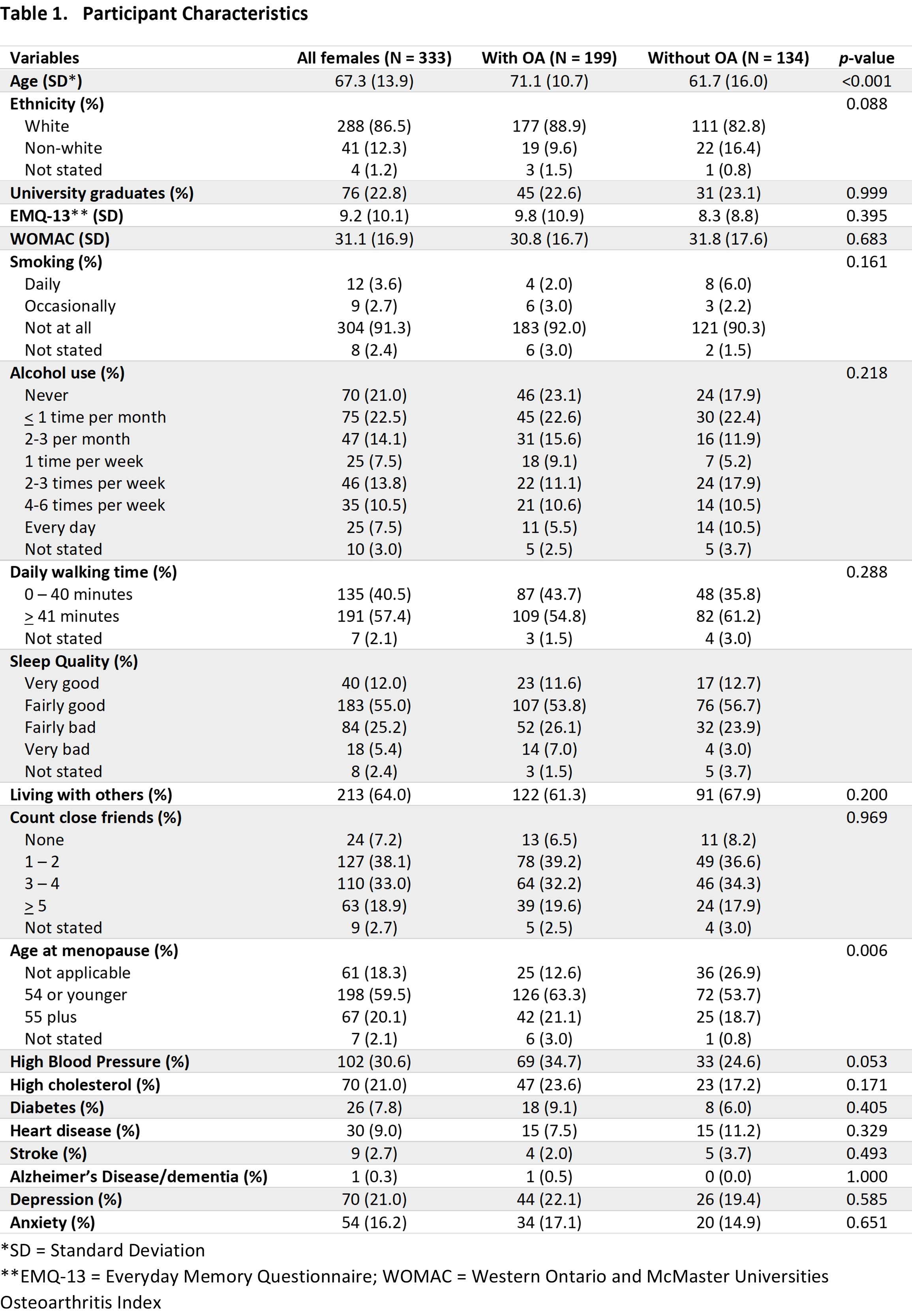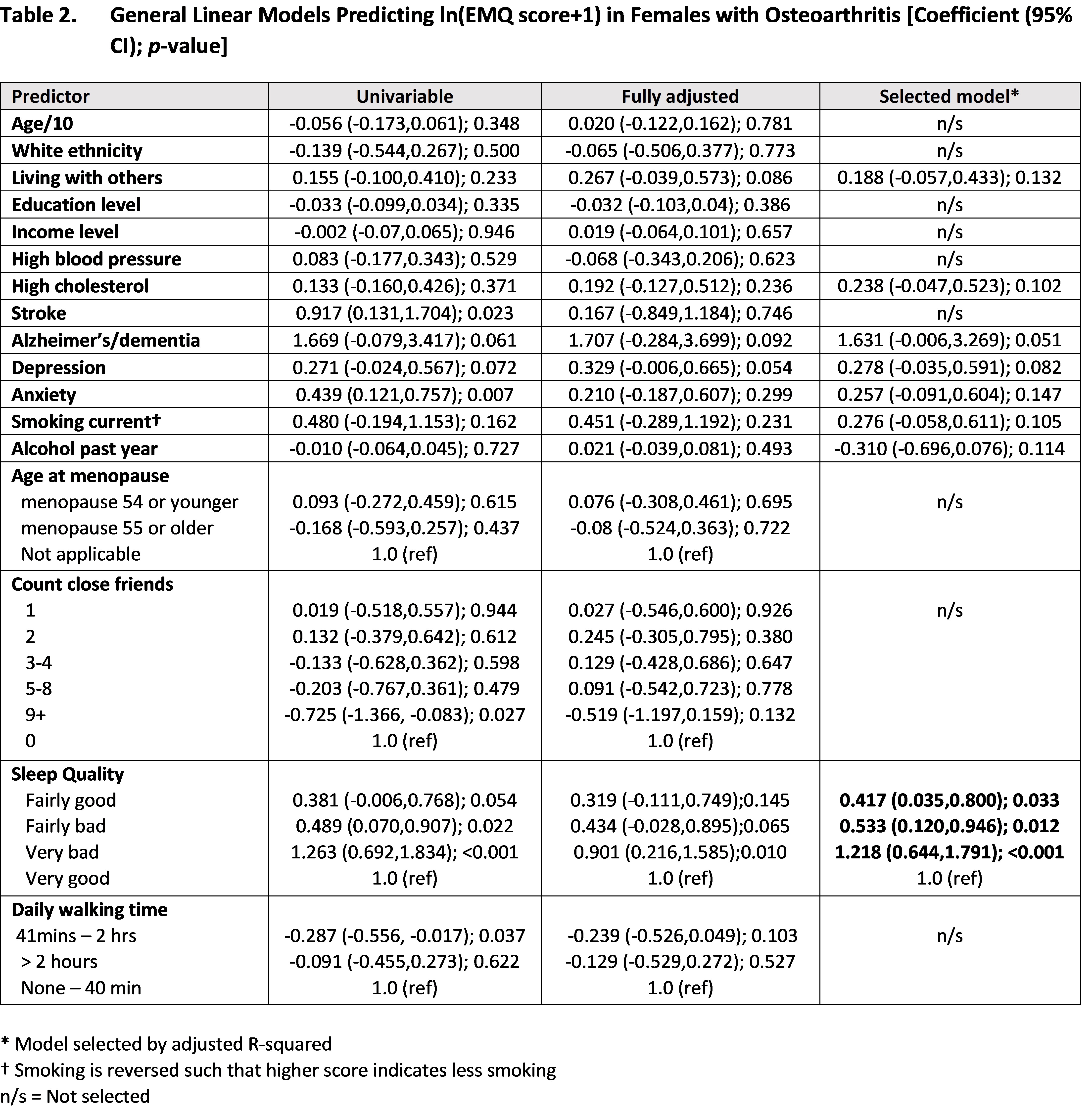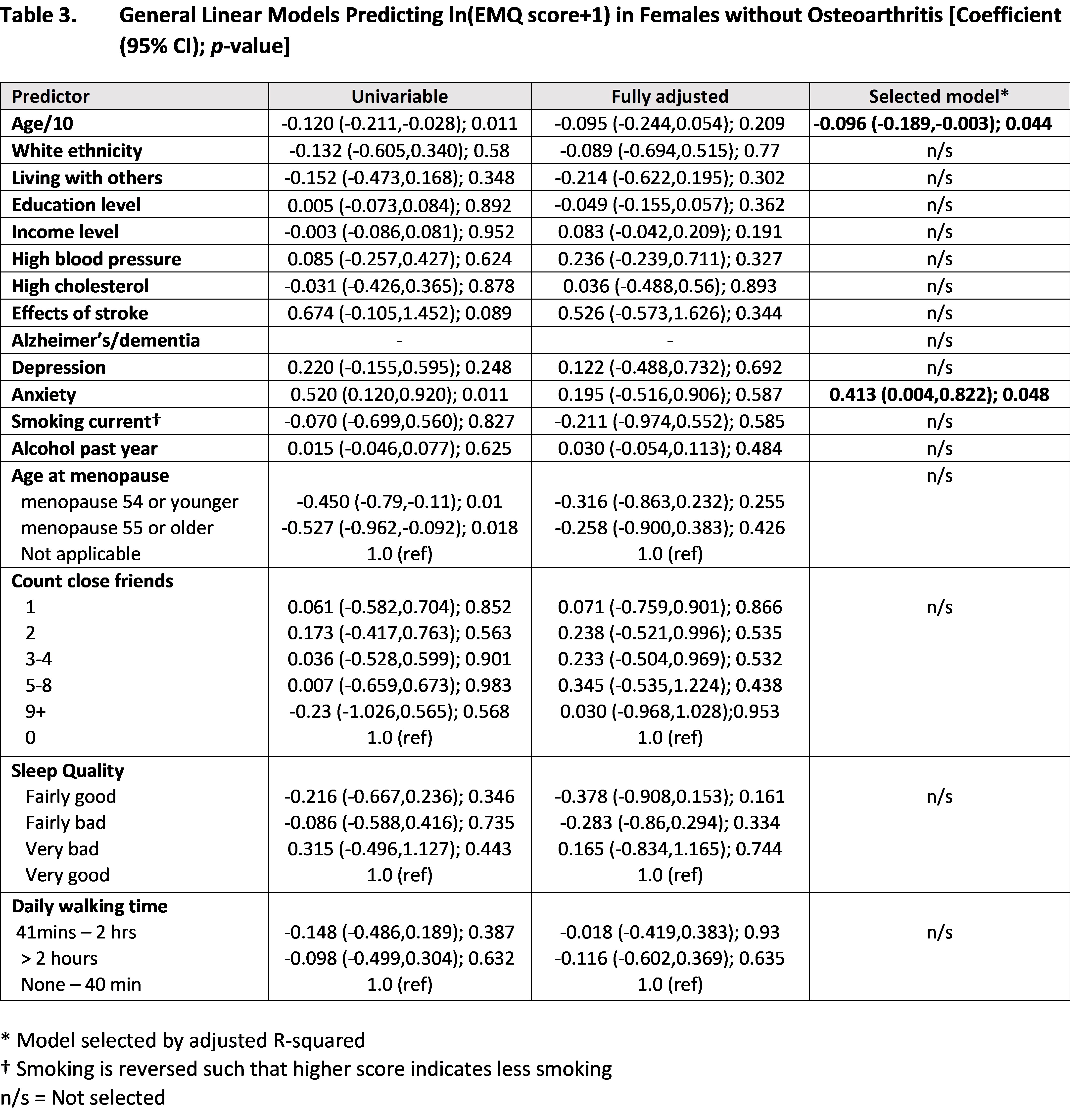Session Information
Session Type: Poster Session A
Session Time: 10:30AM-12:30PM
Background/Purpose: Osteoarthritis (OA) is associated with increased risks of cognitive impairment. Cognitive health is affected by an interplay of lifestyle, metabolic, and biological factors; however, current research focuses mainly on single factor categories. This study assessed the roles of behavioral risk factors, metabolic factors, and age at menopause in perceived memory performance among females with and without OA.
Methods: We conducted a cross-sectional survey in February-October 2022. Invitations were sent to 2,000 randomly selected individuals with a diagnosis of OA and 3,000 randomly selected general population without OA controls based on the ICD9/10 diagnostic codes from the PopData BC administrative database. Perceived memory performance was assessed with the Everyday Memory Questionnaire (EMQ-13; 0-52 points, higher scores = worse memory problems). Participants also completed the Western Ontario and McMaster Universities Osteoarthritis Index (WOMAC) and questions on socio-demographics, health behaviors (smoking, alcohol use, physical activity, sleep quality), social support, age at menopause, mood, and comorbidities.
EMQ-13 was analysed as the natural log of the (sum score+1). We used linear regression models to analyze the natural log of EMQ-13 scores [ln(1) to ln(53)] according to the levels of behavioral, metabolic, and hormonal risk factors, controlling for WOMAC, demographics, and comorbidities for the OA and no-OA groups. Multiple imputation was performed for missing values in the outcome and explanatory variables. For all models, five regressions were fit (one with each imputation), then combined to produce a single set of synthesized regression coefficients with 95% confidence intervals (CIs) and p-values. We also performed model selection to select important variables based on adjusted R-squared.
Results: Of the 333 female participants (OA: 199, no-OA: 134), 86.5% were White with a mean age of 67.3 (SD 13.9) years [OA: 71.7 (10.7), no-OA: 61.7 (16.0); p< 0.001] (Table 1). The mean EMQ-13 score was 9.8 (10.3) [OA: 9.9 (11.0); no-OA: 9.7 (9.2)]. Overall, 6.3% smoked and 31.8% used alcohol at least 2-3 times per week. Depression and anxiety were reported by 21.0% and 16.2%, respectively. 57.4% walked >41 minutes/day in the last 7 days, and 12.0% reported “Very Good” sleep quality. 198 (59.5%) had menopause at age 54 or younger.
In the selected model for the OA group, perceived memory problems were associated with poor sleep quality (Table 2). Compared to the highest level of sleep quality (Very Good), stronger effects were observed with each level of lower quality: Fairly Good: coefficient=0.42 (95% CI 0.04, 0.80), p=0.033; Fairly Bad: coefficient=0.53 (95% CI 0.12, 0.95), p=0.012; Very Bad: coefficient=1.22 (95% CI 0.64, 1.79), p=< 0.001. For the no-OA group, poor memory was associated with age: coefficient=0.10 (-0.19, 0.00); p=0.04, and anxiety: coefficient=0.41 (0, 0.82); p=0.04 (Table 3).
Conclusion: In this random population-based sample, we found that sleep quality was a significant independent predictor for memory problems in females with OA. Among those without OA (significantly younger than the OA counterpart), memory problems were associated with age and anxiety.
To cite this abstract in AMA style:
Li L, Xie H, Lu L, Prlic H, Lacaille D, Avina-Zubieta J, Cibere J, Esdaile J. Sleep Quality Is Associated with Perceived Memory Performance in Females with Osteoarthritis: A Population-based Cross-sectional Study [abstract]. Arthritis Rheumatol. 2024; 76 (suppl 9). https://acrabstracts.org/abstract/sleep-quality-is-associated-with-perceived-memory-performance-in-females-with-osteoarthritis-a-population-based-cross-sectional-study/. Accessed .« Back to ACR Convergence 2024
ACR Meeting Abstracts - https://acrabstracts.org/abstract/sleep-quality-is-associated-with-perceived-memory-performance-in-females-with-osteoarthritis-a-population-based-cross-sectional-study/



